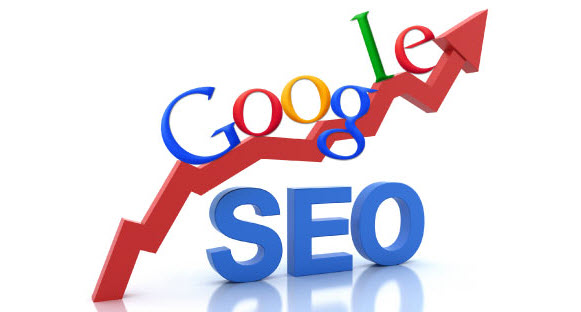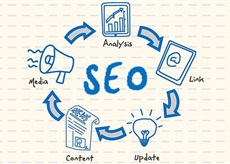Back to list
Key SEO Factors
SEO is aimed at attracting more visitors to your website. It is only possible on the condition that users will see you on Google top positions. We focus on links placed on search results pages, since they are the main source of traffic. This article is about SEO factors that affect Google rankings.
Each SEO specialist can tell you at least 50 key factors of search engine optimization. Google considers over 200 aspects that have an influence upon the website ranking. We described the essential criteria. This information will be helpful for the users who want to take their websites on Google search TOP.

First of all, let us divide SEO factors into several groups:

To sum up, one can single out the most important factors of a successful SEO campaign:
Each SEO specialist can tell you at least 50 key factors of search engine optimization. Google considers over 200 aspects that have an influence upon the website ranking. We described the essential criteria. This information will be helpful for the users who want to take their websites on Google search TOP.

First of all, let us divide SEO factors into several groups:
- On-Page SEO factors: content, keywords, HTML, architecture
- Off-Page SEO factors: link building, Google trust, social interaction
- Site factors: sitemap, geotargeting, server localization, mobile view
- Violations: negative factors to avoid
On-Page SEO factors
These factors directly affect website ranking on search engine system.- Content. The requirements are rather simple in this case: relevance and comprehension.
- Content must be valuable for your visitors and correspond to your website theme. A successful example of a well-written content can be articles like “Hot to…” and “DIY”.
- Text and graphic content presented on a page must be unique: write texts on your own or hire a copyrighter. If your website contains photos or images, you should take or create them all by yourself as well.
- Add keywords to the content, but be careful not to overdo. All the keywords must go well together with the context and do not look like spam.
- Use markup in your content to highlight an important part and attract visitors’ attention. Straight text does not look exciting. Create lists, tables, rates and add images to the text.
- Keywords. The basic SEO tool. The essential criterion — relevance.
- Keywords must be added to the title tag of a page.
- It is desirable to use keywords in the H1 tag.
- Keywords density plays an important role. Avoid excessive spam.
- Using a keyword in URL is another advantage for the page relevance.
- You need to use different variants of key queries in the text and change the word order.
- HTML. HTML optimization includes the following factors:
- HTML validation is a must.
- You need to use HTML-markup to layout the content.
- It is not desirable to excess characters limit in the page description (150 characters or less).
- It is important to stick to the optimal HTML and text ratio on the page.
- Architecture. A good architecture of a website allows search engine systems to index pages.
- You must optimize your website pages to increase the loading speed.
- An easy-to-read URL is an advantage.
- It is not allowed to use a duplicated content.
- It is essential to increase the number of quality pages on a website to be indexed by search engine systems.
- The website must be properly displayed on various screens: PC, tablet, smartphone or other portable gadgets.
- Website usability directly influences the bounce rate.
Off-page factors are also important in search engine optimization:
- Link building. Google gives higher rankings to the websites that have links on other resources and on condition they adhere to the following rules:
- The link relevance is essential.
- A link placed on the website with a high Google trust rank is considered a quality one.
- It is important to distribute anchor, non-anchor and branded links properly. The recommended balance is 50% - 40% - 10%.
- Organic links are preferable. Manipulative links have negative effect upon the trust rank.
- Organic links are preferable. Manipulative links have negative effect upon the trust rank.
- Too many links (anchor ones in particular) on the page are considered spam. These links have negative effect on the page rank.
- You should increase the link mass gradually. The search engine may find spikes in activity very suspicious.
- You need to avoid link blinking: links that are regularly changed give away a low-quality website.
- It is important to check that all the webpages and links work properly.
- You must configure the redirect 301 for the deleted pages to show the search engine the proper direction.
- You do not have to use redirect 302 too often. This method is effective for long or incorrect URLs.
- You need to have a convenient internal interlinking on your website.
- Google trust. This factor consists of several aspects that become of high importance in 2014.
- The domain age influences a site authority.
- Google trends to trust the websites with paid hosting.
- Terms of Service and Privacy Pages mean that the website is reliable and search engines notice it.
- You need to protect your website from viruses. If there is some malware on the server, you’d better configure the 503 page until the problem is solved.
- Social interaction is another important component of our key SEO factors.
- A page/group presented on social media has positive effect on search engine rankings.
- Facebook, Twitter, Google Plus are the most influential social networks.
- Successful promotion implies regularly updated information, sharing news and feedback on social media.
Site factors
Site factors are of medium priority but they also have an effect on search engine positions.
- Sitemap allows the search engine to index webpages. They believe, Google prefer sitemap in the XML format. But in fact HTML works just as good.
- Elimination of duplicated pages. Duplicated pages are not acceptable. You need to use rel="canonical" attribute to avoid them.
- SSL certificates are a must for e-commerce websites.
- Geotargeting. If a project is connected to a certain country or region, geotargeting will have a great impact on its positions.
- You need add proper details to the page Contacts on your website.
- It is desirable to add your company on Google maps and specify full contact details.
- Websites with national domains get advantage.
- Server localization. This is the point about which discussion still revolves. Most of SEO experts believe that server localization matters when searching over specific regions.
- Mobile view. The website must be properly displayed on the screen of a PC, smartphone and other portable devices.
Violations: negative factors to avoid
In addition to factors that have positive affect on the website ranking, we want to discuss some errors that should be avoided not to suffer from Google penalties. Search engines are suspicious to websites that apply the following methods:
- Irrelevant content/not enough content. If the content has nothing to do with the website area of activity it can be considered spam. The same rule can be applied to keywords and links.
- Irrelevant content/not enough content. If the content has nothing to do with the website area of activity it can be considered spam. The same rule can be applied to keywords and links.
- High nesting level. For successful promotion the webpage shouldn’t be higher than the third nesting level.
- Top Heavy with Ads. If your webpage contains too many advertising banners it will be marked as spam.
- Too many popup windows can affect the bounce rate.
- Too many keywords. You should not use too many keywords. The search system detects manipulations that will lead to the positions drop.
- Hidden text and keywords. This is a violation of Google rules.
- Link Spam. Search engines do not accept excessive number of links. Especially when they are placed on suspicious websites and are not relevant.
- Intellectual property rights violation. Websites with unauthorized media content suffer from Google penalties.
- Ignoring Google Webmaster Tools notifications. If you respond the error message on time, you can prevent positions drop.

To sum up, one can single out the most important factors of a successful SEO campaign:
- Content.
- Internal optimization.
- Internal and outgoing links
- Domain factors.
- Social interaction.








